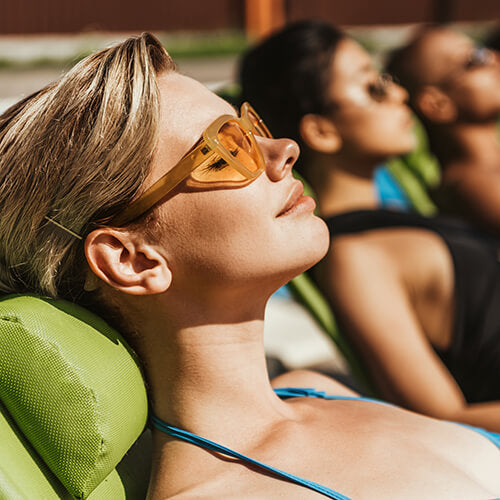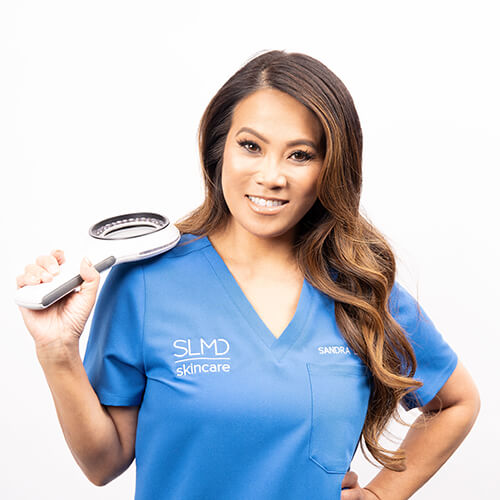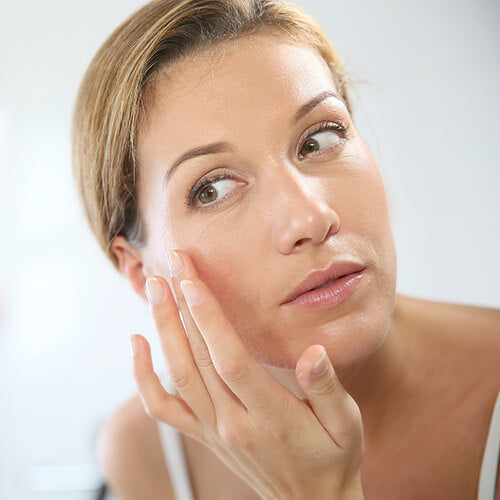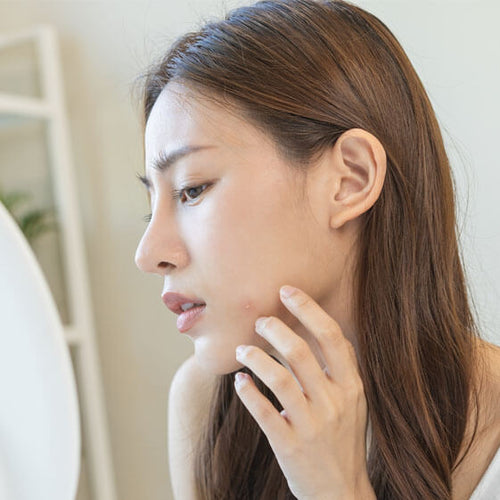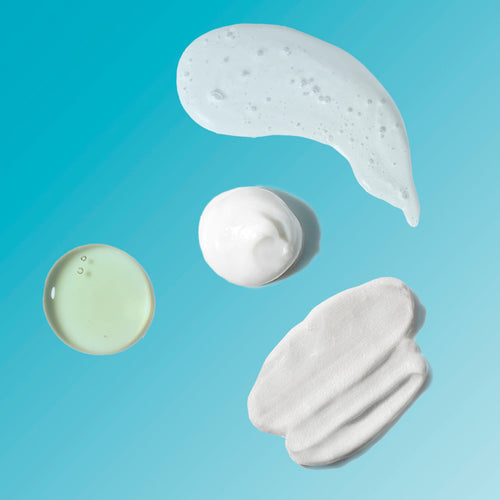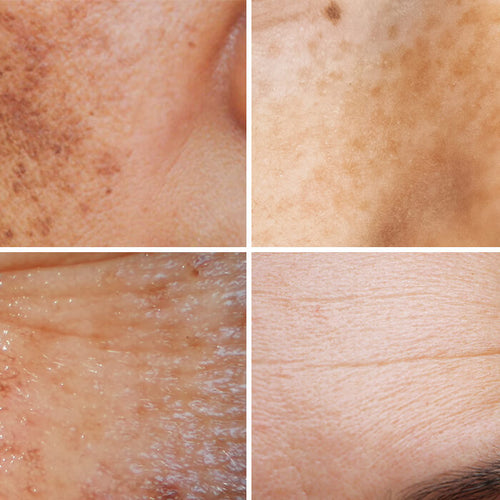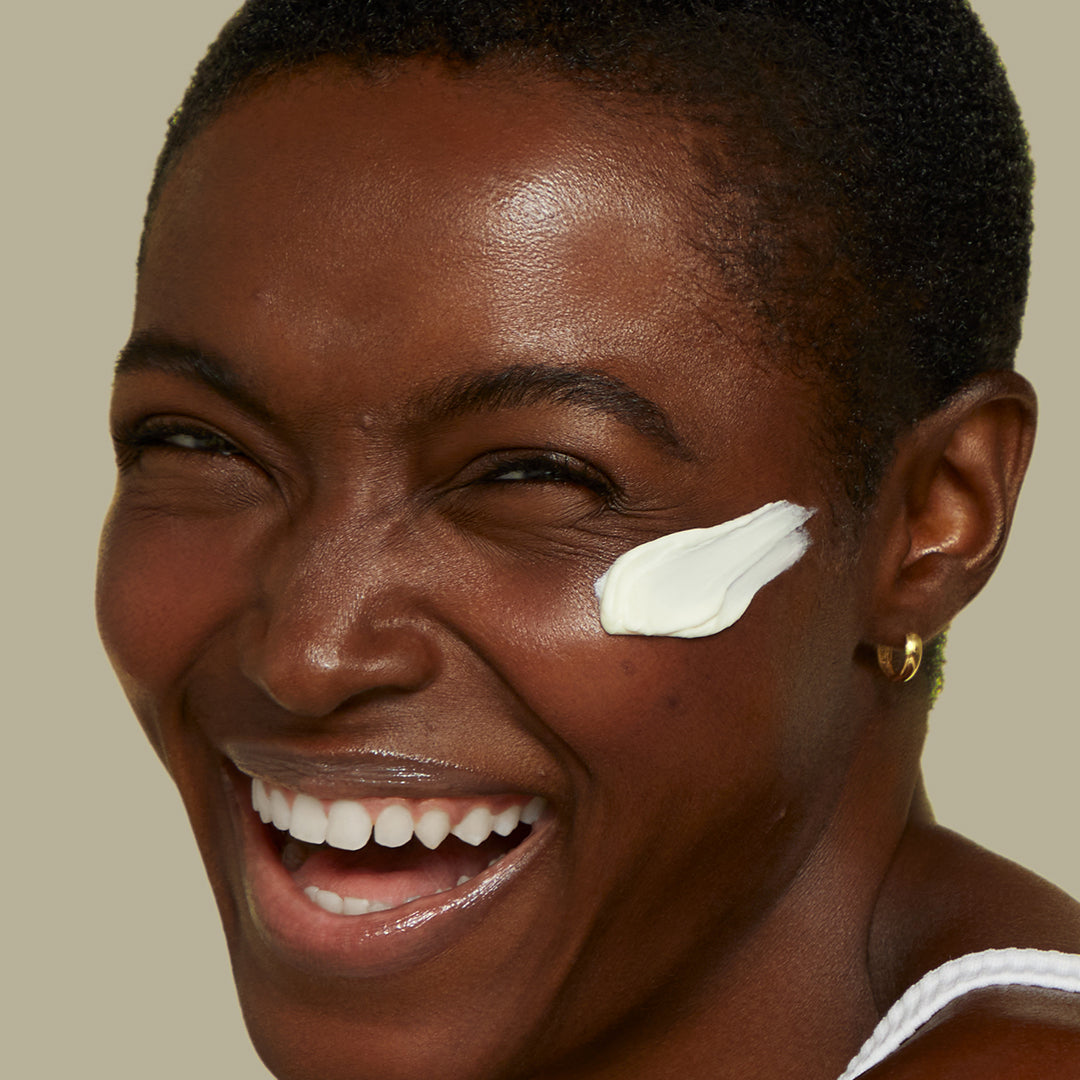
Do You REALLY Need to Reapply Sunscreen?
We understand: layering on sunscreen all day long can be a pain. But here's why dermatologists are so adamant about it.
Published:
3 minute read
We’re willing to bet you already know the answer to this question: yes…yes, you do need to reapply your sunscreen. And we’re also willing to bet that this is something you might be— let’s say, inconsistent — about sticking to.
No judgment on our end: it’s your skin. But understanding the reasoning behind the rule might be exactly what nudges you to protect yourself from the consequences: both short-term (cringeworthy sunburn) and long-term (premature aging and cancer).
Here are three very good reasons, from our founder Sandra Lee, MD (aka Dr. Pimple Popper) why you should be diligent about reapplying your sunscreen.
#1 No sunscreen is 100% effective
Nobody’s perfect — and neither is your sunscreen. These products absorb and/or scatter UV rays, but not all of them. This means that some radiation can still penetrate your skin, even if you're wearing sunscreen. That’s where the SPF rating comes in: it’s a measure of how much UVB radiation is thwarted by the sunscreen.
But if you read our primer on the types of UV radiation, you already know that it’s not just the burning UVB rays that we need to worry about — we also need to contend with UVA rays, which do more long-term damage. That’s why you need to look for sunscreens labeled “broad spectrum,” which indicates that they also protect against UVA rays.
Even with all of this due diligence, you will never find a sunscreen that blocks 100% of damaging radiation. A sunscreen’s effectiveness is also impacted by factors like your skin type and the time of day. What’s more, “Most people don’t use enough product — or apply it evenly enough — to hit that lab-tested SPF mark,” says Dr. Lee.
To really stay protected, she notes, you need to reapply sunscreen every couple of hours, and more frequently if you’ve been in the water or sweating.
Try: SLMD Dual Defender SPF 30, a broad spectrum sunscreen and lightweight moisturizer in one that’s formulated with acne-prone skin in mind.
#2 Sunscreen can easily wear off
Sunscreen is designed to create a protective barrier between your skin and the sun's rays. However, this barrier can break down over time due to sweat, water, and even just rubbing against clothing or towels.
When you swim or sweat, some of your sunscreen can essentially rinse off or even just dilute, reducing its effectiveness. The same goes for getting dressed, sitting on furniture, riding in the car, lying on a beach towel…you get the idea: anytime your skin comes in contact with something after you apply your sunscreen, you might be reducing its ability to neutralize both UVB and UVA rays. This is particularly true for mineral sunscreens, since their sun protectants sit on top of the skin, whereas chemical sunscreen ingredients absorb into the skin.
It's also important to note that not all sunscreens are water-resistant. Even if your formula is labeled as such, the protection does diminish after about an hour of swimming, notes Dr. Lee — which is why you should reapply after you get out of the water.
#3 Sunscreen degrades as it’s working
Different sunscreen ingredients do their job in different ways: some work by absorbing UV radiation and converting it into heat, while others work by reflecting the sun’s rays. It’s more complicated than that — many ingredients do both, depending on UV wavelength, for example — but it’s a useful way to think about sunscreen formulations.
When UV absorbers convert radiation into heat, they break down. It’s easy to understand then how these products become less and less effective the longer they sit on your skin. Hence why you need to keep replenishing your protection with fresh sunscreen.
Another thing to keep in mind is that sunscreen — whether it’s a lotion, cream, spray or stick — doesn’t last forever. By law, it has to retain its SPF for three years, but that’s under controlled conditions. If you’ve carted that bottle around in the summer heat — or left it in your sweltering car — it’s not going to work as well (if at all).
Not sure how old your sunscreen is? Don’t take a chance: treat yourself to a new bottle, and write the date in permanent marker if there’s no expiration date on the label.

Dr. Lee's Last Word
People think we dermatologists sound like a broken record when we keep saying Reapply your sunscreen…but it’s so important. These products can rub off, and they break down in the sun, so adding another layer is the best way to make sure you’re protecting your skin from those harmful rays.







